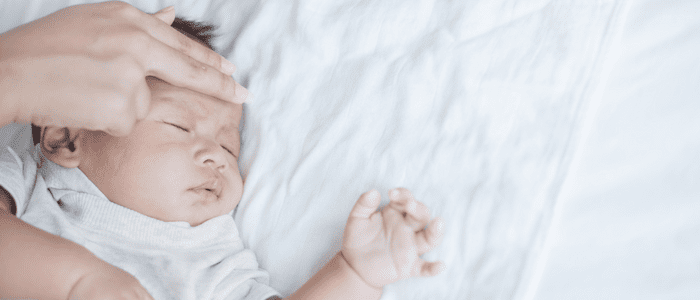As a parent, encountering your child with a fever can be concerning. It’s important to have a clear understanding of what a fever means and how to manage it effectively. According to medical guidelines, a fever in children is defined as a temperature of 100.4 degrees Fahrenheit or higher. Normal body temperature for kids typically ranges from 97 to 100 degrees.
A fever is not just a number; it is a natural response showing that your child’s body is actively fighting off an infection, whether it’s viral or bacterial.
Interestingly, Dr. Carole Anderson, a pediatrician at Youth Clinic, notes that “the severity of the fever is not a reliable indicator of the type of infection. For instance, a child suffering from the flu may have a fever reaching 103 degrees, whereas an individual with strep throat might only exhibit a mild fever of 100.5 degrees.”
Treatment: Focus on Comfort, Not Just the Temperature
When managing your child’s fever, remember to treat the child, not just the number on the thermometer. Here are some guidelines:
-
- Watch and Wait: Monitor your child’s condition. Ensure they stay hydrated and dress them in light clothing to avoid overheating (don’t sweat it out). If they seem overall comfortable, allow them to engage in light play, eat, and drink normally.
- Medication: If your child appears uncomfortable, you can administer acetaminophen (Tylenol) or ibuprofen (for children over 6 months). Always follow the appropriate dosage based on your child’s weight or age. * It is NOT recommended to switch between medications—select one and remain consistent with it. Instead of administering doses every 4 or 6 hours, wait to see if the fever reoccurs before treating again..
- Avoid Alternating Medications: It’s generally not recommended to alternate between different medications. Choose one and stick to it. Instead of giving medication every few hours, wait to see if the fever returns before administering another dose.
- Lukewarm Baths: Consider giving your child a lukewarm bath. Avoid cold baths, as they can lead to shivering, which may inadvertently raise the body temperature.
When to Seek Medical Attention
Knowing when to contact your pediatrician is crucial. You should seek medical advice if:
- Your baby is under 2 months old and has a temperature of 100.5 degrees or higher.
- Your older child exhibits other concerning symptoms such as a stiff neck, irritability, severe headache, signs of dehydration, a widespread red or purple rash, severe abdominal pain, or shortness of breath.
- Your child’s fever persists for more than 3 days.
Fever and Seizures: What You Need to Know
It’s also important to be aware that children under 5 years old can sometimes experience seizures associated with fever, particularly if there is a family history of febrile seizures or if the child has had one before.
If your child has a seizure:
-
- Place them on their side on a flat surface and ensure the area is free from any hazards.
- Loosen their clothing to help them breathe more easily.
- If the seizure lasts less than 2 minutes, contact your physician for guidance.
- If the seizure lasts more than 5 minutes, or if your child turns blue or has difficulty breathing, call 911 immediately.
If you’re ever uncertain about the severity of your child’s fever or symptoms, don’t hesitate to use our symptom checker or consult with a healthcare professional. Your child’s well-being is of utmost importance, and being informed can help you make the best decisions for their care.
Learn more about Dr. Carole Anderson, who has been a peditrician at The Youth Clinic since 2001, by clicking here.
Looking for a Pediatrician?
For over 60 years, families across Northern Colorado have trusted our compassionate team to care for children through every age and stage. From infancy to young adulthood, we’re here to support your family with expert guidance, personalized care, and a welcoming environment.

